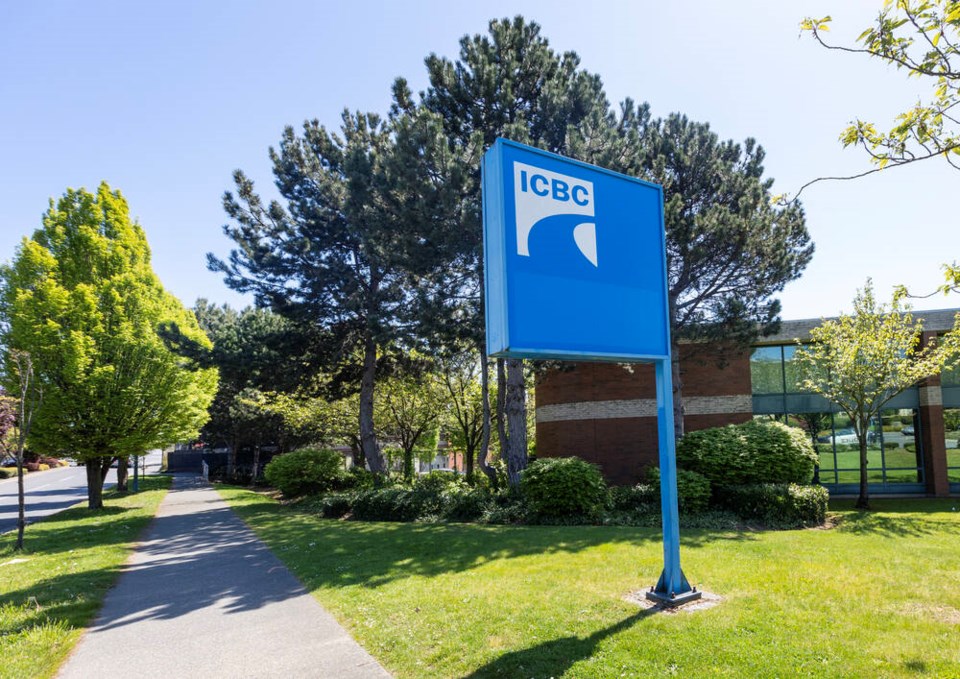To protest the lack of independent oversight and the transparent vote-buying underway in Premier David Eby’s Wednesday announcement, I will be returning the upcoming $110 ICBC rebate as a matter of conscience.
Just kidding.
Of course I’ll take it. So will everyone else. Who’s going to argue over a free gas fill-up?
The money will start pouring into the accounts of 3.6 million customers shortly, and the NDP hopes it will create subliminal warm feelings that will glow until voting day this October.
There’s just one detail about how they are accomplishing this that might concern a few theoreticians.
It’s the fact they are jamming it through with zero oversight, even though there’s a nominally independent agency that is supposed to scrutinize ideas like this.
And they’re doing that for the fourth time.
A cabinet order coming very shortly will send the rebate idea to the B.C. Utilities Commission and give it 10 days to review whether this is the best possible use of $400 million.
Then it has to say “yes.”
They’ll barely have time to buy a new rubber stamp for all the approval forms.
It has been a set piece in the government playbook, no matter which party is in power. They take turns subverting independent oversight and ordering up BCUC approvals as needed.
A background briefing prior to Wednesday’s announcement provided a refreshingly straightforward explanation of the rationale. It was explained that the Supreme Court of Canada has repeatedly confirmed that there are limits to the independence of tribunals and commissions like the BCUC.
They have quasi-judicial functions, but “they operate ultimately as part of the executive branch of government under the mandate of the legislature,” an official said.
ICBC was made subject to the commission’s oversight in 2003, and the bypass route has had lots of traffic.
“Every government has exercised this authority from time to time,” said the official.
The upcoming rebate will be the fourth in the past five years, all delivered after the BCUC was ordered to approve them.
Each approval includes this tiny disclaimer: “The BCUC has not reviewed the application for its regulatory justification.”
In other words: “We didn’t even look at this. Because we weren’t allowed to.”
Anyone who would like an expert outside view of whether rates should have been lowered, or categories of coverage adjusted, or whether the money would have more impact on a longer-range use is out of luck.
It is a good idea, because Eby says it is a good idea. And he says it’s a good idea because it fulfils his plan announced when he became premier to demonstrate progress “in ways you’ll be able to see and feel.”
Some of the money materialized from the remarkable turnaround at ICBC. It’s the biggest single unequivocal win for the NDP over seven years in office, for which Eby, as attorney general and premier, deserves credit.
After a huge fight with lawyers, legislation in 2020 restructured Autoplan to curb tens of thousands of expensive lawsuits and move to “enhanced care” where claims are paid out by a formula as needed.
It stripped people of the right to sue in many cases and capped some claims, but has saved billions of dollars and gave ICBC room to cut rates, freeze rates and hand out the rebates.
Another big reason for the rebate is the booming performance of ICBC’s investments, particularly in the last quarter. Eby said that stems partly from the fact that control of the fund was stripped from the corporation and handed to the much bigger B.C. Investment Management Corp., which handles public-sector pensions.
ICBC made about nine times more than it expected on investments last year. Today, it is posting big revenues, is starting its sixth year of no rate hikes and rebating money is becoming routine.
There is continual criticism about how the NDP makes grant announcements and huge funding commitments that don’t seem to make much difference (see decriminalization, housing crisis, emission reductions.)
ICBC is their one big win. Putting the rebates to an impartial test would probably confirm that. But it would likely take until after the election. So the rubber stamp approval has been ordered once again.
>>> To comment on this article, write a letter to the editor: letters@timescolonist.com



